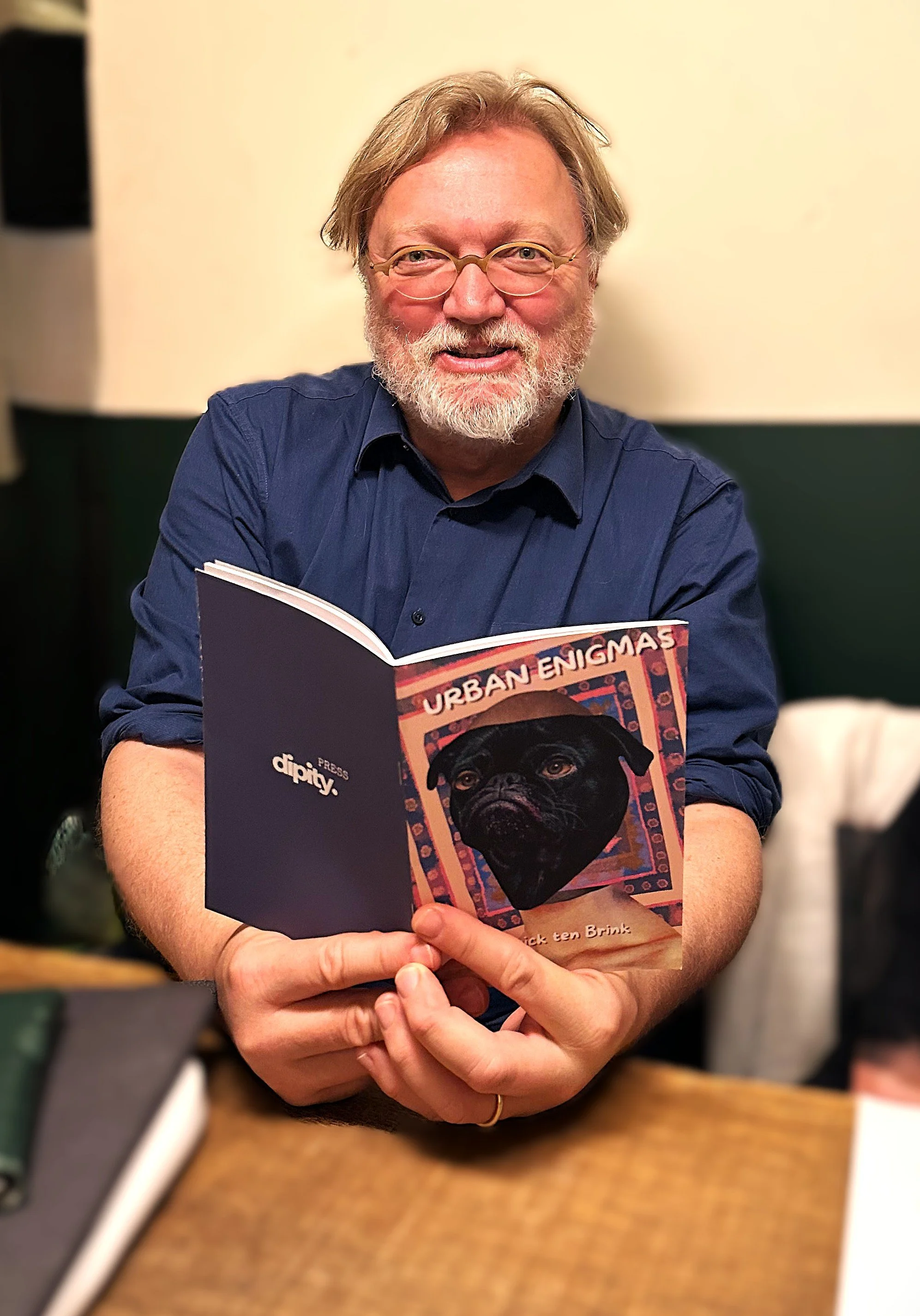Urban Enigmas Patrick ten Brink’s Chapbook Finds Beauty in the Overlooked
By Loretta Fahy
Urban Enigmas, a chapbook in five parts, published by Dipity Press, is at its heart an invitation to pay attention. A reminder of the gritty beauty that is to be found if one moves through a city landscape with the finely tuned senses this poet does, absorbing every detail from its discarded waste with its coded messages, to the people in their oversized clothing who roam the bus stops and the parks.
This wonderfully vivid collection is a reminder that all is available for us to catch for a delicious instance, should we pay attention not just to the lofty institutions but also to the discarded things left outside.
Urban Enigmas by Patrick ten Brink - Bookcover
About Patrick ten Brink
Patrick grew up in Germany, Australia, Japan and England and studied Physics and Philosophy in the UK, French literature in France, and Mexican Literature of the 20th century in Mexico. He lives and works in Brussels, his day job dedicated to protecting the environment, his spare time to writing fiction, poetry and art reviews. His fiction and poetry have been published in the US, Canada, the UK, Belgium, Germany and India.
The Group’s Reflection
ten Brink read several poems from his collection on the evening, including The Monsters Roam from the opening section, Urban Waste Management. Using strong imagery and drawing on a vivid imagination, this poem paints a searing description of humans’ constant gorging that generates endless white bags of sweetmeats that need disposing of.
Another favourite of the groups was The Half Apple, from the third section Deciphering Intent, which generated lots of discussion around the mystery of these half apples peeled and put out in the world like some coded message that does not reveal itself.
The poems in Urban Enigmas are filled with human detritus, lone shoes, lost puzzle pieces, bathtubs and a host of other abandoned but not useless pieces. They were certainly put to admirable use in the hands of this poet, who weaves them into an homage to urban life with all of its wonder and waste.



